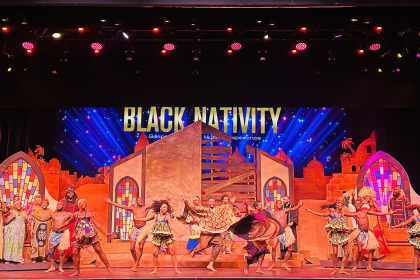 African American holiday menus during the 19th century were remarkably similar to the culinary preferences of black families today. “There’s a wide repertoire of food. Everybody understands the iconic list of greens and pork chops and corn bread and sweet potato pie. But that is only a minor list of all of the different foods that people eat within their own communities,” says Leni Sorensen, a researcher at Thomas Jefferson’s Monticello.
African American holiday menus during the 19th century were remarkably similar to the culinary preferences of black families today. “There’s a wide repertoire of food. Everybody understands the iconic list of greens and pork chops and corn bread and sweet potato pie. But that is only a minor list of all of the different foods that people eat within their own communities,” says Leni Sorensen, a researcher at Thomas Jefferson’s Monticello.
In the post-slavery years of the late 19th century, geography determined how families celebrated the holiday season via food, which included Thanksgiving, Christmas and New Years. During this time, African Americans were mostly a rural people, meaning their tables were filled form whatever they pulled from the farm and killed and carved in the barn. The Taste of Country Cooking by the late culinary giant Edna Lewis is a poignant account for Sorensen because it shows patterns of local community informing holiday celebrations.
“She writes beautifully [regarding] Central Virginia area and getting ready for Christmas,” Sorensen says, translating how Lewis recalled family members stories of the 1880s and 1890s. This time of year our African American ancestors favored almonds, oranges and raisins. Christmas Eve supper consisted of oyster stew, country ham and yeast bread with blackberry jelly, cakes and cookies.
The blacks of South Carolina feasted on rice and shellfish for Christmas, whereas their brethren in New Orleans took to the the Gulf Coast for their seafood fare.
In the 20th century, as blacks migrated north, new dishes emerged in the urban environment. “People moved away from being on farms very dramatically. Urban families began to eat very differently,” Sorensen says. Domestic workers cooked what the families they worked for craved or perhaps stood behind the stove in a hotel kitchen. And that widened their breadth of cooking.
Sorensen says this confirms that African American appetites have always corresponded to the mainstream palate. “I do resist in many ways that there’s this separate, distinct African-American way to be. I believe that we have been so completely immersed and integral to the development of the general American culinary scene,” Sorensen says. -terry shropshire
















